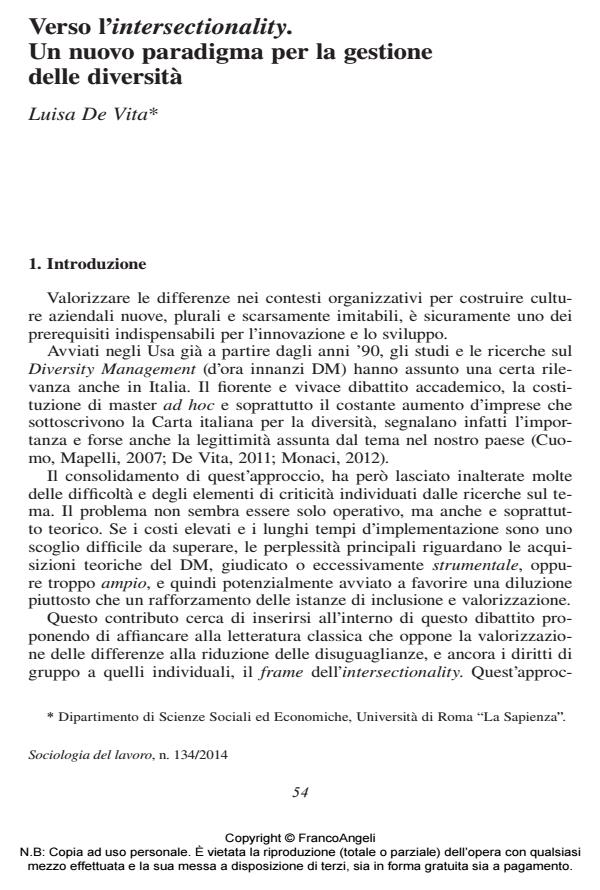Towards intersectionality. A new framework for managing diversity
Journal title SOCIOLOGIA DEL LAVORO
Author/s Luisa De Vita
Publishing Year 2014 Issue 2014/134
Language Italian Pages 14 P. 54-67 File size 107 KB
DOI 10.3280/SL2014-134003
DOI is like a bar code for intellectual property: to have more infomation
click here
Below, you can see the article first page
If you want to buy this article in PDF format, you can do it, following the instructions to buy download credits

FrancoAngeli is member of Publishers International Linking Association, Inc (PILA), a not-for-profit association which run the CrossRef service enabling links to and from online scholarly content.
The paper discusses the possibility of introducing into the debate on diversity management the intersectionality framework. The paper first provides a comprehensive review of the literature on diversity and then, by analysing the existing gaps in the current practices, identifies the possible implications and innovations that can be produced using an intersectional perspective. It is argued that mainstream theories of diversity help us to understand both the structural constraints and the advantages that may arise from diversity. However, these theories are unable to fully account for differences that may exist within social groups and to consider the complex and irreducible nature of belonging, social interaction and power. The practical implications of the concept of intersectionality, and the possible benefits of its application, are also discussed.
Keywords: Intersectionality, gender, equal opportunity, diversity management, difference, diversity
- Aggirare i vincoli. La frammentazione del lavoro nell'industria dell'ospitalità veneziana Francesco E. Iannuzzi, in SOCIOLOGIA DEL LAVORO 146/2017 pp.139
DOI: 10.3280/SL2017-146009 - Disuguaglianze, diversità e inclusione nei sistemi organizzativi in Italia e in Portogallo: la parola agli esperti Laura Falci, in SOCIOLOGIA E RICERCA SOCIALE 136/2025 pp.33
DOI: 10.3280/SR2025-136003
Luisa De Vita, Verso l’intersectionality. Un nuovo paradigma per la gestione delle diversità in "SOCIOLOGIA DEL LAVORO " 134/2014, pp 54-67, DOI: 10.3280/SL2014-134003